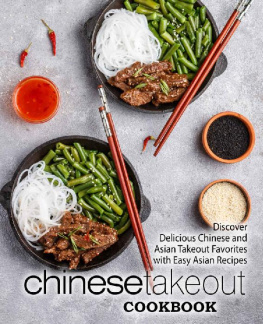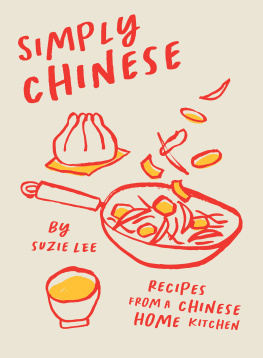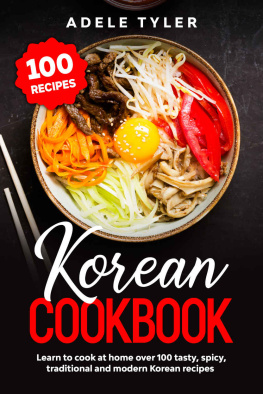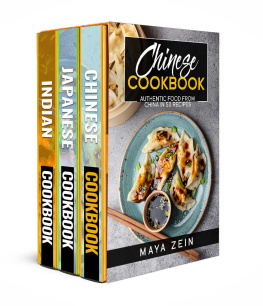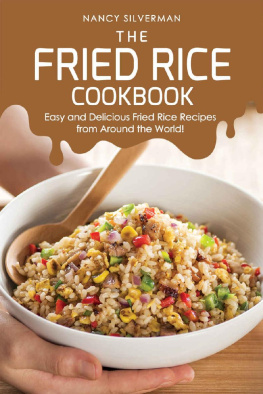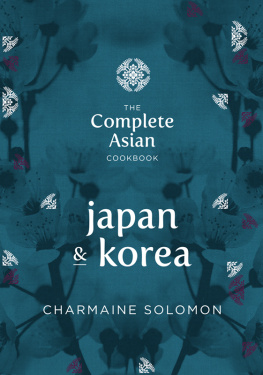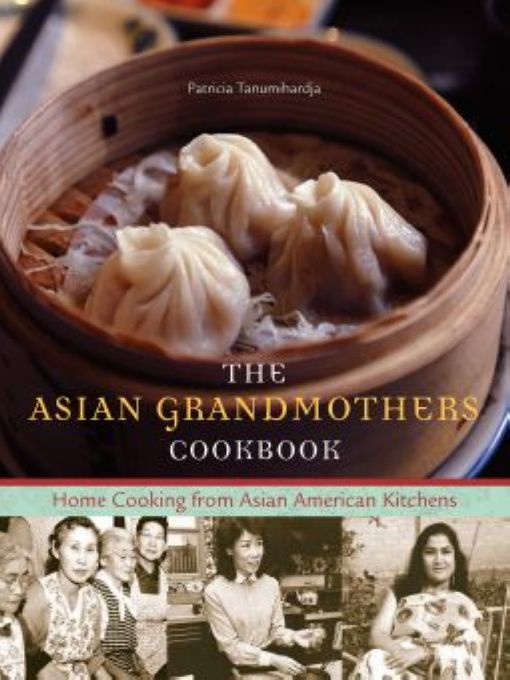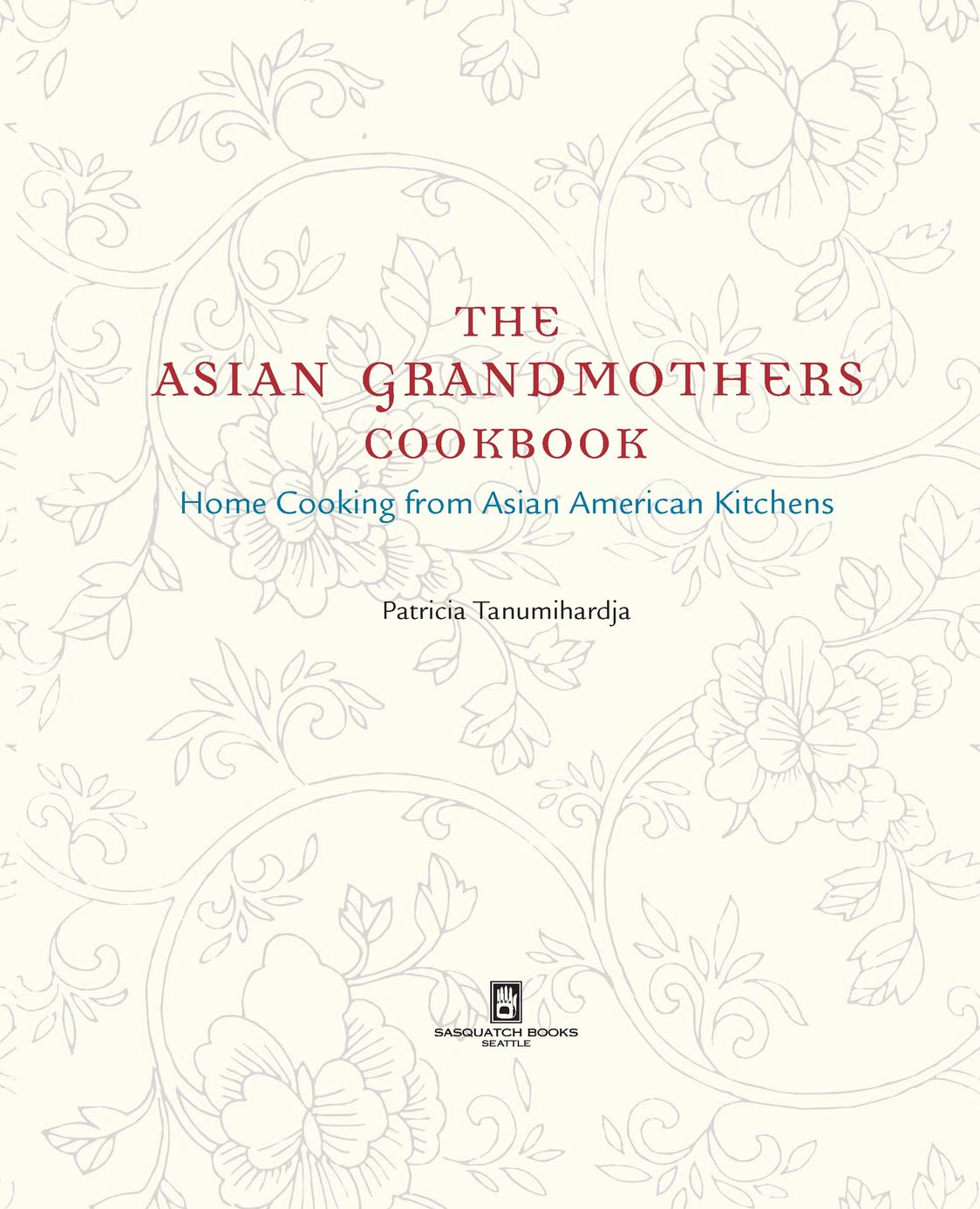Table of Contents
ACKNOWLEDGMENTS
This book strikes a very sentimental chord with me.
For one, I never really knew my grandmothers, and growing up I envied friends who had grandma close by. My maternal grandmother passed away before I could remember her and my paternal grandmother lived in a completely different country. Because of this book, I now have multiple surrogate grandmothers!
Secondly, I have realized how very grateful I am to my mother, Juliana, who connected me to my cultural roots through food. Living in an adopted homeland, I was unconsciously linked to the country and culture I hardly knew through the food I ate every day. It is because of her that food plays such an important role in my life. I cannot thank her enough for the delicious and nutritious food she served us and for shaping me into the person I am today. I must also thank my father, Rudy, who has loved me unconditionally and supported me in everything I do. He also taught me a very important lesson: You cant argue with taste!
And of course I am eternally grateful to my loving husband, Omar, who patiently taste-tested every single recipe in this book, even if the dish looked or smelled interesting (his words exactly), and put up with my stressful months of writing, recipe testing, and editing.
And a very special thank you to the grandmothers I profiled in this book. They generously spent time with me, cooking and sharing words of wisdom and life stories: Sang Jung Choi, Ellen Shyu Chou, Keo Choulaphan, Niloufer Gupta, Kimiye Hayashi, Daisy Kushino, Nellie Wong, Alvina Mangrai, Gloria Santos, and Merla See. This book would not have been possible without you!
Additional thank yous:
To the wonderful team at Sasquatch Books: Publisher Gary Luke for putting the idea for this cookbook in my hands, Rachelle Long for being a patient and thorough project editor, Deri Reed for meticulously copyediting the manuscript, Rosebud Eustace for designing a lovely book, and Lara Ferroni for her gorgeous photography. Thank you for helping me fulfill my dream.
To Irene Trantham and Melissa Chin for helping with edits and research.
And to all the wonderful people who cooked with me, shared recipes and stories, tested recipes, and/or helped me make connections:
Samia Ashraf
Byron Auyong, aunt Merla See
Eric Banh
Sophie Banh
Ivy Chan, father Kwok Sing Chan
Lynn Chang, mother Li Chang
Mary Lee Chin
Cathy Chun
Cathy Danh (gastronomyblog.com)
Olivia Dyhouse
Tisa Escobar
Wing Fong, grandmother Pearl
Fong
Marvin Gapultos (burntlumpia
.typepad.com)
Aaliyah Gupta, mother Niloufer
Gupta
Desiree Haigh
Pranee Khruasanit Halvorsen
Luwei Hioe, mother Linawati Hioe
Dorothy Ho, mother Yuh-Wan
Chiang
Churairat Huyakorn
Soyon Im, aunt Yangja Cho Im
Susan C. Kim, grandmother Sang
Jung Choi
Katie Kiyonaga, mother Kimiye
Hayashi
Shelly Krishnamurty, mother
Champa Ramakrishna
Scott Kushino, mother Daisy
Kushino
Eleanor Lee, mother Jean Lee
May Leong
Thanapoom Lertpanyavit, mother
Panee Lertpanyavit
Tony Lew, mother Luisa Ines
Taborda de Lew
Sharon Lim
Manda Mangrai, mother Alvina
Mangrai
Yuki Morishima
Delia Lim Mota
Lisa Nakamura
Rin Nedtra
Huong C. Nguyen, mother Huong
Thu Nguyen
Kim Khanh Nguyen
Mumtaz Rahemtulla
A. Rick Rupan
Roshita Shrestha
Jeff and Arman Siddiqui
Juana Stewart
Erica Sugita
Hiroko Sugiyama
Brigitta Suwandana
Phiroum Svy
Elaine Tay
Yi Thao
Leah Tolosa
Mike Tolosa
Lan Tran
Carol Vu, mother Thanh Nguyen
Ivy Wong, mother Pearlie Wong
Rachel Wong
Consolacion Mejia Yaranon
Angeline and Roxanne Yeo,
mother Rosalind Yeo
RECIPE TESTERS:
Tuty Gunawan Alexander
Ann Marie Amarga
Matthew Amster-Burton
Katie Bashford
Julia Blanter
Susan Blee
Barb Bowen
Bri Brownlow
Angela Caragan
Diane Carlson
Jeffrey Chan
Tricia Cornell
Corinne Domingo
Jill Donnelly
Jennifer Fields
Jenny Fisk
Paula Forbes
Angela Fountas
Ada Fung
Marvin Gapultos
Ashley Gartland
Sharon Giljum
Joanna Harbaugh
Laura Navarra Haxer
Luwei Hioe
Cynthia Lannen
Kristel Leow
Jennifer Burns Levin
Hilary Lundquist
Nga Ly
Manda Mangrai
Angela Montgomery
Louise Mor
Diane Morissette
Christina Nevin
Eve Ng
Deanna Schneider
Heather Shannon
Carolyn Smith
Niki Stojnic
Danielle Sucher
Jesse and Laura Sycuro
Jess Thomson
Celeste Torres
Marie Tran
Sally Warn
Jora Atienza Washington
Tara Austen Weaver
Rose Wiegley
Ivy Wong
Sandy Yeung
INTRODUCTION
Grandmothers are the embodiment of love, comfort, and security. Many of us have fond memories of her kindly words of advice (elbows off the table!), the red packets filled with money she gave us at Lunar New Year and birthdays (how else could we fund our Barbie doll habit?), and the chicken rice porridge that gave us sustenance when we lay sick in bed (or just feigned illness to stay home from school). In Asian cultures, the grandmothers role is manifold, but one is of utmost importance: to ensure that grandchildren learn and preserve the many aspects of their ancestral culture. This is especially true in immigrant communities.
As an Indonesian Chinese living my formative years in an adopted country, food was a very vital link to my culture and heritage. In my case, my mother was the missing link as my sole surviving grandmother lived in a different country. Hence, for me and many others, grandmothers, mothers, and aunts are all custodians of home-cooked traditions.
More often than not, these women cook by instinct and their recipes are not recorded on paper. They hand down the secrets of the art of cooking verbally, and by example, from one generation to the next. By running around their knees or loitering at their elbows, generations of children and grandchildren have learned foodways and captured vivid memories of the hows and whys of cooking via osmosisfrom the snap, crackle, and pop of spices roasting in the pan to the subtle balance of hot, sour, sweet, and salty on the tongue. These women link us to our heritage, particularly through food.
Today, life has changed. Instead of popping over to Grandmas place (she might even live on a different continent) or pulling out the wok to recreate our favorite family recipe, we head to any one of the Japanese restaurants down the block when we hanker for a savory sukiyaki. If we feel like a snack of crispy wontons, Chinatown beckons. Craving some pho (beef noodle soup)? Then we head for one of the Vietnamese restaurants that are competing for storefront space with coffee shops and yet another Thai eatery.
Just when did the restaurant become the keeper of our Asian food heritage? Perhaps the forced incarceration of Japanese Americans during World War II led subsequent generations of Asian Americans to distance themselves from their heritage. Maybe it was in the 1960s and 70s, when mothers fed the work force instead of their children. Or perhaps it was when migrationwhether voluntary or forcedsplintered families, scattering them around the world. The phenomenon could be perpetuated by nuclear families splitting apart thanks to increasing divorce rates. We could also chalk it up to the inevitable watering-down of culture and heritage that comes with living in an adopted homeland over many generations. And who can blame refugee children for wanting to eat meatloaf instead of


